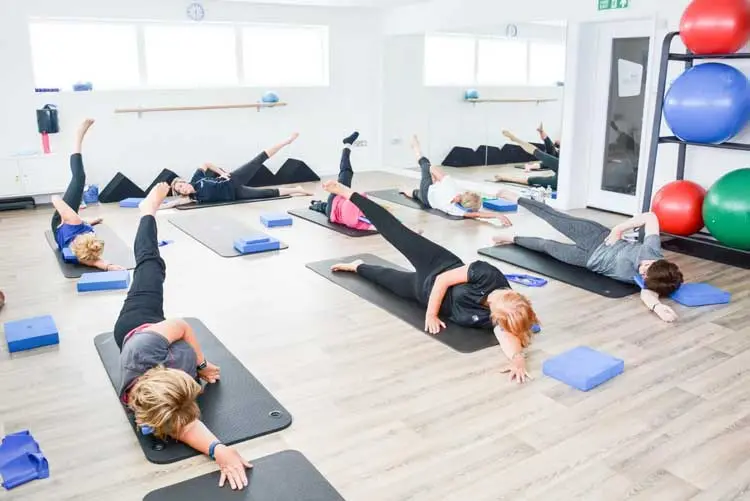It’s International Pilates Day today! A day for the Pilates community to unite in celebration of everything Joseph and Clara Pilates brought to the world.
Pilates Day spotlights the joy experienced through Pilates – in health, community and quality of life.
We’ve been providing clinical Pilates to the Chandler’s Ford community since 2011, so we thought it would be a great opportunity to tell you a little more about the joy that is Pilates!
What Is Pilates, Anyway?
Pilates is a series of controlled movements designed to strengthen muscles – with an emphasis on the body’s core. It was developed by Joseph Pilates, a German of Greek ancestry who came to the United States before World War II. The popularity of his methods spread gradually, finally hitting the mainstream in the 1990s.
Pilates believed that the key to good fitness was to use precise, controlled movements using the body’s own weight as natural resistance (he later invented several machines for Pilates training). His exercises focus on breath control, concentration on the overall movements required and the proper alignment of the body. The meditation needed to do Pilates correctly represented his belief in the connection between physical and mental health.
There are a lot of similarities between Pilates and yoga. They share some movements, as well as the focus on breathing and control. However, their origins are very different.
Although both exercises can be performed on mats, Pilates isn’t a form of yoga. You need no other special equipment. Most Pilates exercises involve holding a body part in a particular position while you control your breathing. For example, you might lie on your side and raise your top leg several inches up. This exercises both the muscles that lift the leg, the muscles that stabilise the rest of the body and the muscles required for controlled breathing.
What is Clinical Pilates?
The classes we offer here at goPhysio are ‘Clinical Pilates’. This means that the Instructors are also clinical graduates, so Physiotherapists or Sports and Rehabilitation Therapists. They are all trained with the APPI method of Pilates.
The APPI Pilates Method is the creation of two Australian Physiotherapists, Glenn and Elisa Withers. The method is based on many years of clinical practice in treating movement dysfunctions through their roles as world leading Physiotherapists and Pilates teachers. The Method encompasses three core areas of pain, pathology and function. Each Pilates movement has been analysed based on these three core areas.
Pain is a chemical and as such alters the way certain muscles move and therefore can dictate the way these muscles need to be rehabilitated through the APPI Pilates Method.
Pathology is the term used to describe an injury and this has been analysed to dictate what movements will help a set pathology, and what movement might make a sert pathology worse. This forms the indications and contraindications of the APPI Method. Finally Function.
Function is the term used to describe how we do our everyday tasks.
APPI has analysed all of the Pilates movements for their ability to help us retrain a certain function. This means that the APPI Method is much more than just a way of toning a person physique, but is a research based, clinical application of improving the way a person moves and functions in their everyday life.
The APPI Pilates method has now been applied in areas as diverse as physiotherapy injury rehabilitation, paediatric rehabilitation, neurological rehabilitation, elite sports rehabilitation, elderly care, womens health and much more.
Our Classes
We run a range of Clinical Pilates classes here at goPhysio in our onsite studio. It’s a very welcoming and comfortable space and you’ll be supported and encouraged positively throughout.
- Classes are run through a membership system. Read more about this at clinical pilates
- Have a look at our latest timetable online/pilates-timetable to find a class that might suit you.
- Classes are small, there will be a maximum of 7 people per mat class, 5 in Reformer Pilates.
- You’ll find the classes are individually tailored and progressed to challenge you positively.
Read More



